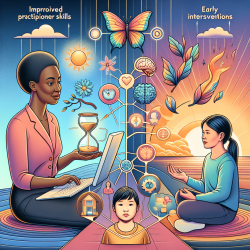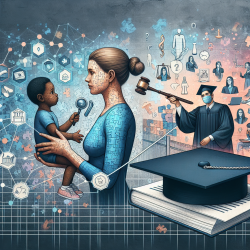In today's fast-paced world, online therapy has become a vital resource for schools and mental health professionals. TinyEYE is at the forefront of providing these services, helping practitioners adapt to the unique challenges of videoconferencing psychotherapy (VCP). A recent literature review, titled A Perspective on Client-Psychologist Relationships in Videoconferencing Psychotherapy: Literature Review, sheds light on how therapists can enhance their skills and improve client outcomes through VCP.
Let's dive into some key findings and practical tips from the research to help you make the most of your online therapy sessions:
- Embrace the Computer as an Active Participant: The study highlights that the computer is not just a tool but an active part of the communication process. Acknowledging its presence can help therapists and clients better navigate their interactions.
- Build Trust and Empathy: Despite initial skepticism, the research shows that clients generally feel satisfied with VCP, often developing strong therapeutic alliances. Therapists can foster trust and empathy by focusing on clear communication and being emotionally present.
- Addressing Psychologists' Concerns: Many therapists find it challenging to establish the same quality of therapeutic relationships online as they do in person. The study suggests that specific training in VCP can help therapists feel more confident and effective in their online sessions.
- Leverage Technology to Enhance Interaction: Use digital tools to your advantage. Features like screen sharing, virtual whiteboards, and secure messaging can make sessions more interactive and engaging for clients.
By implementing these insights, therapists can improve their online therapy skills and provide better support to their clients. For those interested in further exploring this topic, the original research paper offers a comprehensive overview of the client-psychologist relationship in VCP.
To read the original research paper, please follow this link: A Perspective on Client-Psychologist Relationships in Videoconferencing Psychotherapy: Literature Review










